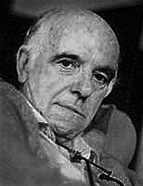

Regarding the periodization of the Portuguese language, Cintra seems to follow the compartmentalisation proposed by others with few deviations (Pilar Vásquez Cuesta and Maria Albertina Mendes da Luz, Gramática Portuguesa , vol. I, Madrid, 1971, p. 202). One of these deviations is not taking the battle of Aljubarrota (1385) as a signpost for the so-called middle period. Aware, once again without theories, that time has non-coinciding series in different aspects of human life (and that, therefore, politics and language did not necessarily evolve in tandem), he argued in class, as Ivo Castro reminds us, that the middle period began with the generation after Aljubarrota, “ when a linguistic pattern based on the dialects of the centre of the kingdom began to be outlined, when modern prose began to be written by those of the Illustrious Generation and those close to them ” ( org. Faria 1999: 368 ) . Also noteworthy, in the field of the history of the Portuguese language, is the work he wrote on forms of address, to which historians such as Vitorino Magalhães Godinho have paid attention.
Considering the fields where Cintra was most active (medieval historiographical literature, Romance linguistics , and dialectology), it was precisely in medieval historiographical literature that his impact was most noticeable.
Cintra felt that his doctoral thesis had a wider reach outside Portugal than within ( org. Faria 1999: 50 ) , although it did receive recognition in his own country, namely within the Academia Portuguesa da História [ Portuguese Academy of History ] , and above all in the next generation, as evidenced by the praise of various Portuguese colleagues, such as Teresa Amado, who considered his study of the Crónica Geral de Espanha [General Chronicle of Spain] “ one of the most important works of the century for the literary history of our Middle Ages ” , or Luís Krus, for whom the Crónica Geral de Espanha de 1344 [General Chronicle of Spain of 1344] was “ exemplarily studied by Cintra ” [Krus 1993: 189]. José Mattoso believes that the relationship between texts and testimonies in the main medieval Portuguese lineage books was persuasively defined by Cintra, who was also convincing in demonstrating that the so-called Livro III [Book III] and Livro IV [Book IV] de Linhagens [of Lineages] are two versions of the compilation organised by Count Pedro de Barcelos and that the main source of this compilation is the Liber Regum , organised in Navarre in the 13 th century ( org. Faria 1999: 565 ) . Methodologically, Mattoso sees his various works as making an important contribution to the renewal of Portuguese historiography thanks to the way he uses textual criticism, a reputed sine qua non instrument for the “ correct interpretation of medieval texts and documents ” ( org. Faria 1999: 33 ) .
This work is financed by national funds through FCT - Foundation for Science and Technology, I.P, in the scope of the projects UIDB/04311/2020 and UIDP/04311/2020.
